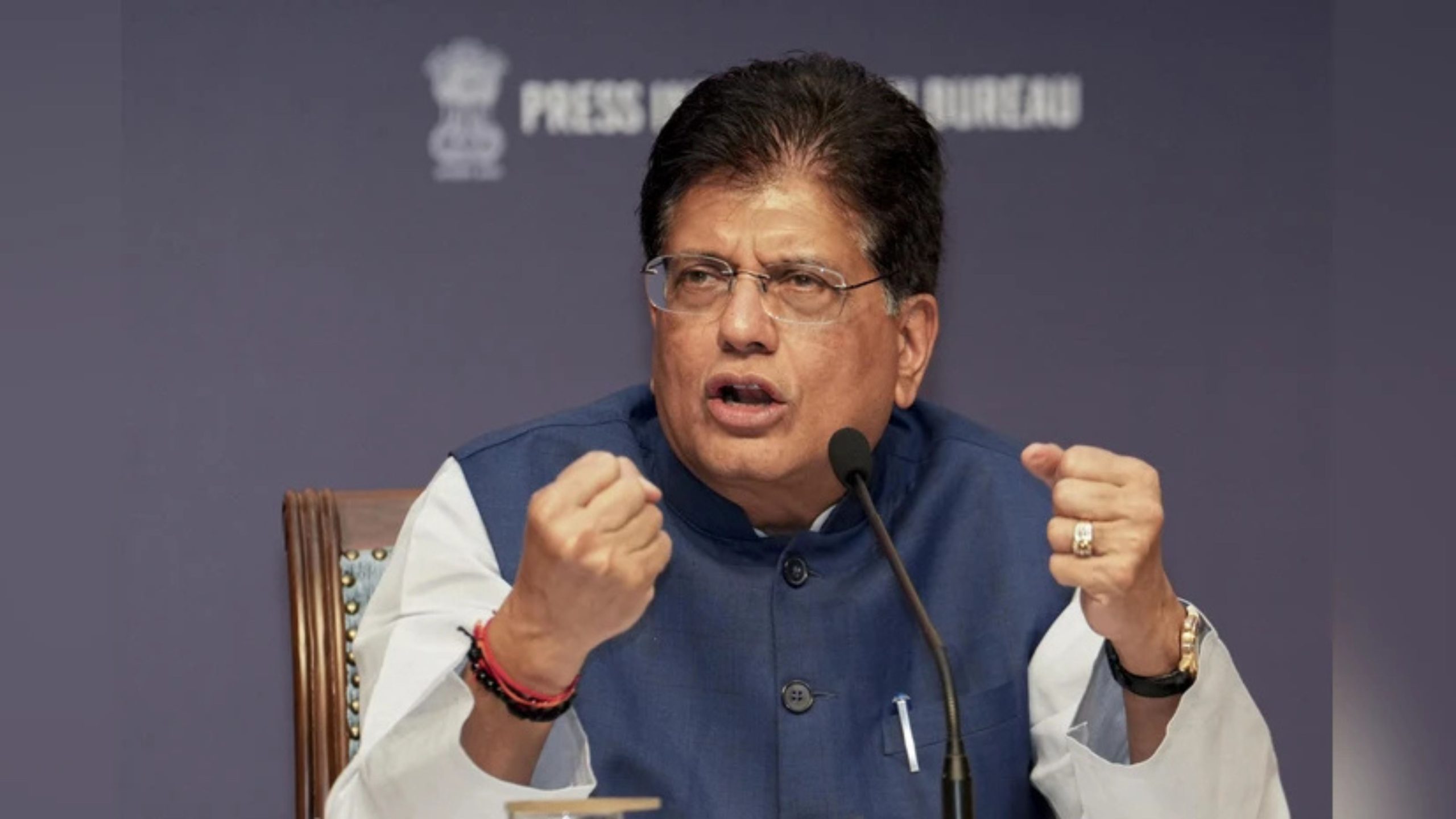AsiaTechDaily – Asia's Leading Tech and Startup Media Platform

India Pushes for Corporate-Led Capital to Support Young Startups
Commerce Minister Piyush Goyal encourages corporates to pool funds and reduce dependence on foreign investors.
India’s Commerce and Industry Minister Piyush Goyal has called on Indian corporates to create a domestic pool of capital to support startups, arguing that many young companies end up giving away large equity stakes at very low prices because early funding in India is still dominated by foreign investors, PTI reported.
His comments, made at an event in Mumbai, reflect a growing concern inside the government: India has a strong startup pipeline but a weak domestic capital base, especially in the seed and early-stage segments.
A Call to Reduce Dependence on Foreign Capital
According to Goyal, early-stage founders often “sell out a large part of their equity at abysmally low prices” because Indian capital is not available when they need it most. Foreign investors tend to enter early, acquire significant ownership, and shape the long-term direction of these companies.
He described foreign investors as “sharks” who “kill ideas or buy them cheaply,” and urged corporates to respond by building a Swadeshi capital pool that can stand beside the government’s own funding schemes.
Goyal’s remarks highlight an important shift: the government does not just want more startups — it wants Indian-owned startups that keep value creation within the country.
Why This Appeal Is Timely
Industry data shows that domestic capital still plays a small role in India’s venture ecosystem compared to global funds. Pension funds and insurance companies largely stay away from startup investing, and most major corporate houses have not built meaningful venture arms.
This gap became clearer during the recent “funding winter,” where foreign VCs pulled back due to global economic uncertainty. Many Indian founders struggled to raise follow-on capital, forcing them to cut costs, delay expansion, or take down-rounds.
A domestic capital base can offer stability during global downturns. It can also create patient capital — investors willing to stay for the long term rather than push for quick exits.
Deep-Tech, Innovation, and Quality: The Broader Push
Goyal also asked Indian firms to focus on innovation, quality, and sustainability — themes he has emphasised over the past year.
Recently, he said the government’s second Fund of Funds will channel capital specifically into deep-tech startups, which include companies working in semiconductors, space tech, defence, mobility, advanced materials, and AI. The goal is to reduce dependence on foreign technologies and encourage IP creation within India.
This aligns with a visible shift in the government’s policy narrative:
from consumer-tech growth to innovation-driven growth.
Why Corporates Need to Step In
Corporate venture investing in India is still underdeveloped. While companies like Reliance, Tata, JSW, and Mahindra have made strategic startup investments, the scale remains small compared to global peers in the US, Japan, or South Korea.
Creating a common pool of funds can help corporates:
- Share risk rather than fund individually
- Support sectors that need long-term investment (deep-tech, manufacturing, climate tech)
- Use startup innovation internally to modernise their own operations
- Increase India’s share of globally competitive technologies
For startups, this can lead to more options for early funding and less pressure to give up significant equity too early.
Structural Barriers Still Exist
Despite the minister’s push, several structural issues make domestic pools hard to build:
1. Risk-averse culture
Indian corporates and family offices prefer safe investments. Venture capital demands a higher appetite for risk.
2. Limited regulatory flexibility
Regulations around pension funds, banks, and insurance companies restrict them from investing freely in startups. This limits the scale of domestic capital.
3. Short-term return expectations
Deep-tech companies need longer time horizons, often 7–12 years. Corporate India often seeks faster returns.
4. Lack of professional VC experience
Many corporates have not yet built teams that understand startup investing or technology evaluation.
If these issues are not addressed, building meaningful fund pools will be difficult.
What a Domestic Capital Pool Could Change
If Indian corporates respond to Goyal’s call, the impact could be substantial:
- Less early dilution: Founders keep more ownership.
- Stronger local innovation: More capital flows into R&D-heavy fields.
- Better resilience: The ecosystem becomes less dependent on global financial cycles.
- Increased valuations and exits: A healthier domestic funding base can create stronger late-stage companies.
- More local job creation: India retains value capture instead of exporting it through ownership transfer.
This could also encourage more Indian LPs (limited partners) to invest in VC funds, helping the ecosystem mature.
A Message to Corporate India
Goyal’s message is clear:
The government will continue to invest in startups — but it expects corporate India to shoulder more responsibility. A domestic pool of funds, if created thoughtfully, could become one of the most important reforms for India’s startup landscape in the next decade. But it will require:
- regulatory support,
- corporate willingness to take risks
- patient investment horizons.
For now, Goyal has triggered an important conversation at a moment when India is trying to shift from being a major consumer-tech market to a genuine innovation hub.
Key Takeaways
- Piyush Goyal wants corporates to create a shared domestic fund pool so startups don’t have to give away large equity stakes to foreign investors.
- Early-stage Indian capital is still limited, forcing founders to accept lower valuations in the initial rounds.
- The minister stressed innovation, quality, and sustainability, and highlighted that upcoming government funds will prioritise deep-tech ventures.
- A stronger domestic pool can offer patient capital and reduce India’s dependence on global market cycles.
- Structural barriers remain — risk aversion, regulatory limits, and lack of VC expertise within corporates.
- If implemented, a domestic capital pool could strengthen founder ownership, boost deep-tech, and support long-term economic growth.



